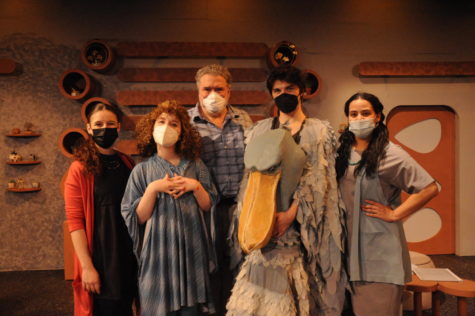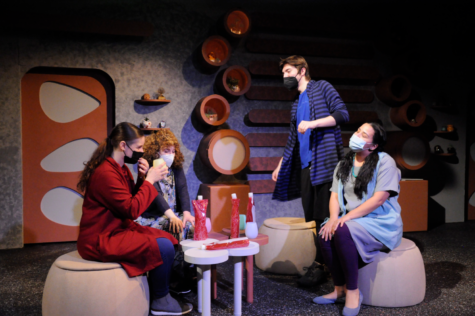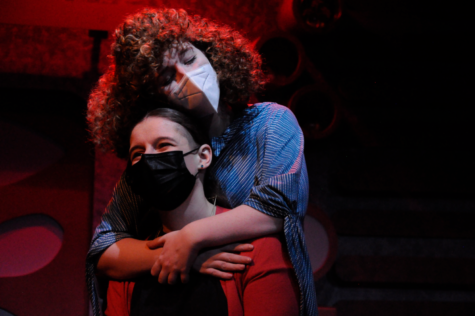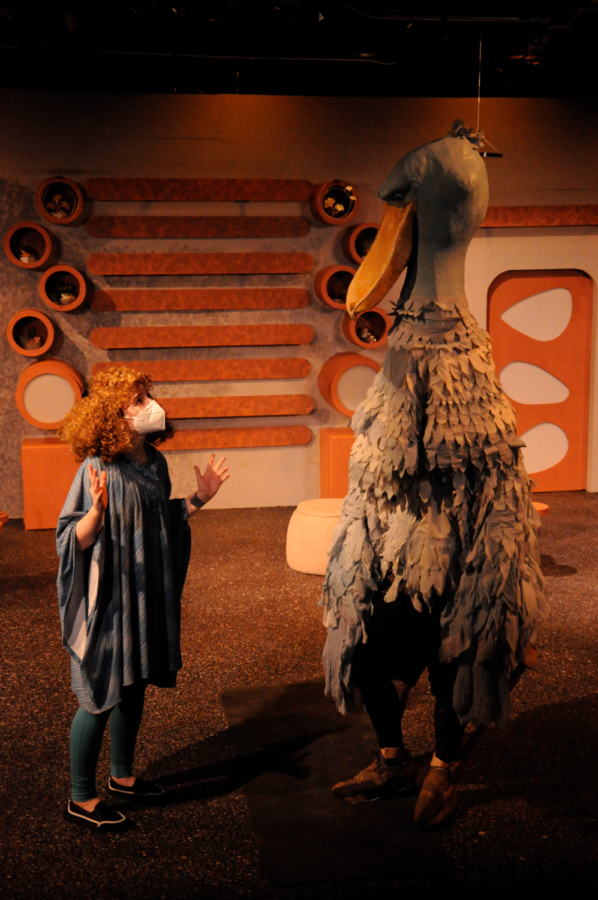“Babel,” and the Search for the “Perfect Human Being”
March 12, 2022
The search for the perfect world, the perfect civilization, the perfect human being is a recurring theme, a fundamental question and perhaps intrinsic to our nature. How can we improve the world as a society, as individuals? The history of humanity is largely the history of the answers to these questions in action, operating on the face of the earth. Literature has also contributed to this debate, but instead of being restricted to looking back, it has the power to imagine how far the consequences of the ideas that guide humanity’s actions can go along paths traced from today.
The lesson we can draw from history, from the times paradise on Earth has been promised, is that with the best of intentions—or disguised as the best of intentions—the greatest atrocities are committed. The role of dystopias may not be to teach lessons but to suggest questions, to shake, to wake up, to open one’s eyes to what is not yet but could be, or even more alarming, to show what is already happening but remains in some way hidden from our eyes. Instead of the blunt inevitability of history, dystopias,–even if they paint sometimes dire pictures–hold out the hope that something can still be done about it.

“Babel” tangentially deals with a dark page of history that cannot be erased but can be prevented from repeating: eugenics. The eugenics movement arose at the end of the 19th century by attempting to apply the theories of Darwin to human beings. Francis Galton, cousin of Charles Darwin himself, is considered the father of eugenics, defined in his own words as “the study of all agencies under human control which can improve or impair the racial quality of future generations.” This affirmation carries an intrinsic racist formulation and the denial of the equality of all human beings, of their equal value and dignity.
Theories of scientific racism were fed from the seed of eugenics, which reached wide development in the United States with authors such as Madison Grant with “The Passing of the Great Race”, a book published in 1916, where he made the statement of the racial superiority of the Northern Europeans. This publication contributed to the founding of the American Eugenics Society in 1921, an organization from which eugenics theories were transformed into government policies, such as the forced sterilization of people with disabilities or mental illness, but especially of the black population. Later, it was praised by Hitler.
These racist and eugenicist policies explicitly served as a model for the Nuremberg Laws that institutionalized the persecution of Jews in Nazi Germany. They were taken to the extreme with the massive sterilization of Jewish women and the Aktion-T4 plan that ended the lives of hundreds of thousands of people who, due to different physical or psychological disabilities, were considered a financial and genetic burden on German society and state.

In the world of “Babel,” the racial component of the eugenics of the early 20th-century has been overcome, but instead, the new eugenics establishes the criteria to determine which lives are worth living and which are not based on genetic parameters. Only the fittest should be born for “the good of the community,” which is still an approach similar to that of Nazi Germany since it is an exclusive community, of which only “the certified” are part.
The new eugenics, using scientific and technological progress, develops and takes genetic determinism to the last consequences, an idea that was already present in the first eugenics movement and postulates that we are determined in all aspects of our existence by our genetic material and that human beings do not change. However, the evidence against that claim is overwhelming. The personal experience of any individual is enough to show that life is ever-changing and that although genetics is a factor to be taken into account, it is a conditioning element but not a determining factor. Our history, experiences, decisions, freedom of action and conscience say more about someone than any genotype can.
Determining who should or should not live by their genetic information is an arbitrary decision, just like the 19th-century race theories used by early eugenists. They also believed that they acted following the infallibility of science and progress. But what is science but a relative and partial knowledge of the immensity of the universe? What is progress but a word empty of content and in need of a direction? Science and progress must be placed at the service of humanity as a whole and, at the same time, of each and every one of the human beings in a particular and personal way. Not the other way around. When humanity ceases to be an end and becomes a means, human life—especially that of vulnerable, oppressed and discriminated groups—becomes something disposable, substitutable. As Hannah Arendt said: “where human life becomes superficial, totalitarianism lurks”
In “Babel,” we see how the lives of those who do not meet the genetic standards are directly cut short without further consideration. Seeing this on stage can surprise or even shock us, but the truth is that reality is not far off. Considered one of the fathers of modern genetics, Jérôme Lejeune, the French scientist who discovered trisomy 21, or Down syndrome, also developed the amniocentesis as a prenatal diagnostic tool soon after. His biggest fear was that instead of becoming a scientific breakthrough for treating and improving the quality of life for people with Down syndrome, it would become a way to eliminate them before they were born. His fears have been confirmed over time as well as in the cases of people with spina bifida or even with easy-to-treat diagnoses such as cleft lip.

I cannot get out of my head two moments in the theater where both Renee and Ann said they did not want to bring a “monster into the world.” Is it possible for a child, a baby, no matter how serious his condition is, to be a monster? Can a defenseless being without guilt or evil be a monster? Would it not be the other way around? Are not those who deem them “monsters,” the ones who deny their humanity, the real monsters?
I have kept thinking about that word, “monster,” and I have discovered that after all—although a shiver ran down my spine when I heard it in the play—“monster” is not an entirely inappropriate way to refer to those who are different. It is a word that originated from the Latin “monstrum”—to show—this is derived from the verb “monere,” which means to warn. According to classical literature, a monster was a warning sent to the world by supernatural forces to communicate a message.
Perhaps those whom we insist on calling monsters are here to tell us something, to show us that the perfect human being is none other than the one capable of showing humanity, of leaving their selfishness, to give on behalf of others. To warn us that the true human being is the one capable of seeing in the eyes of others—even in those who are different—perfect human beings, just like him, with the same value and dignity.






